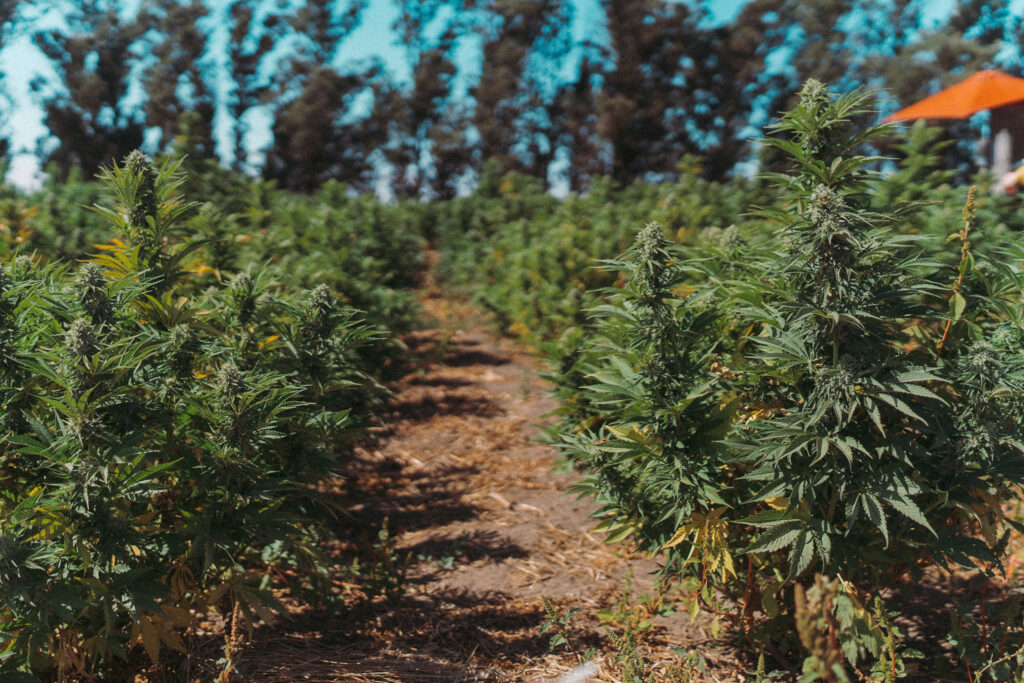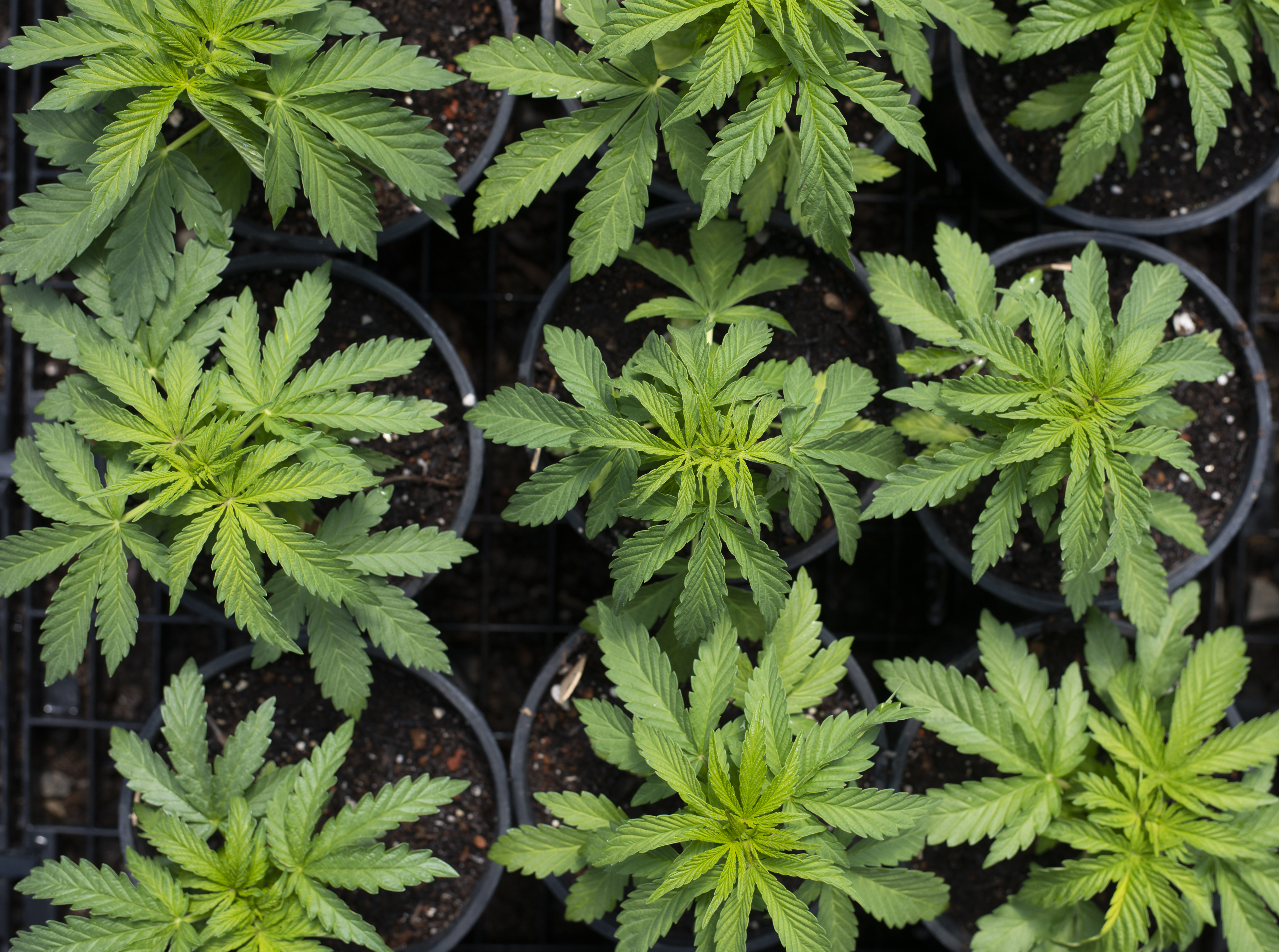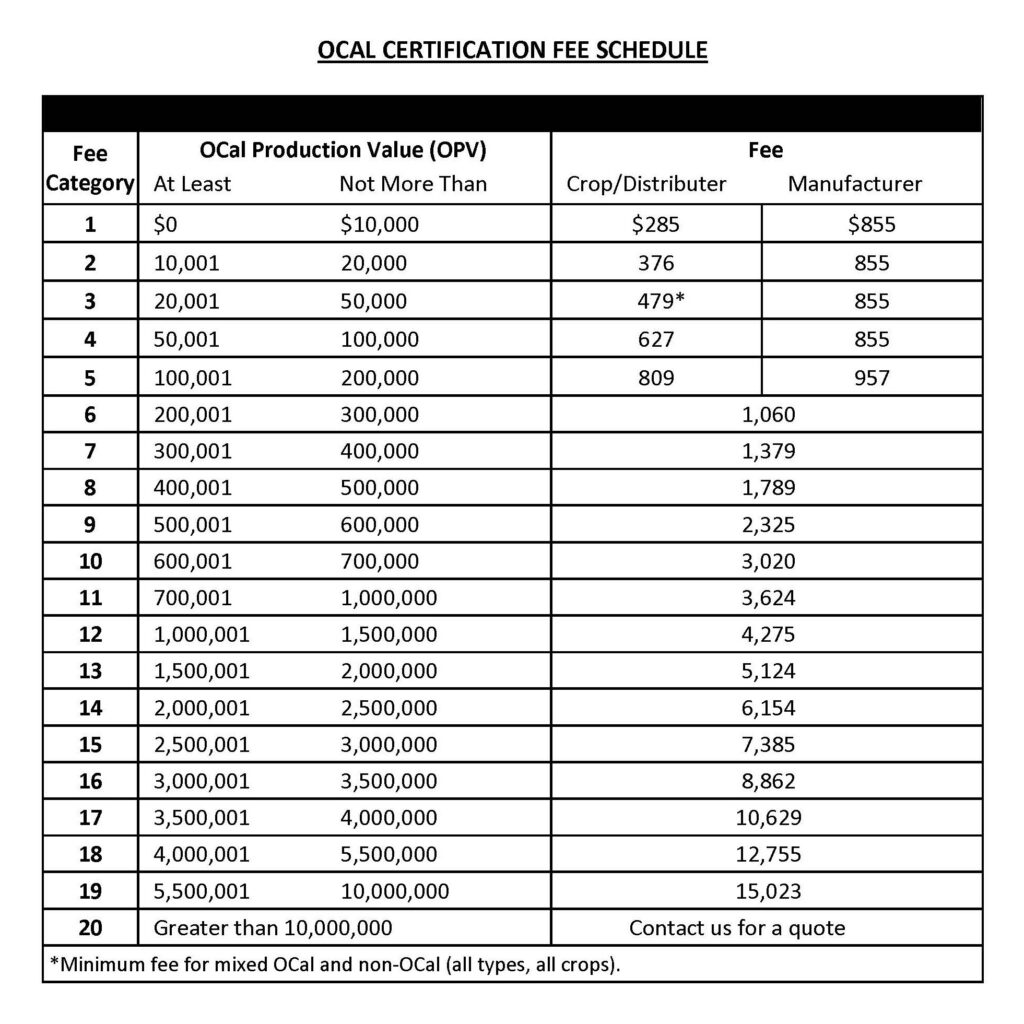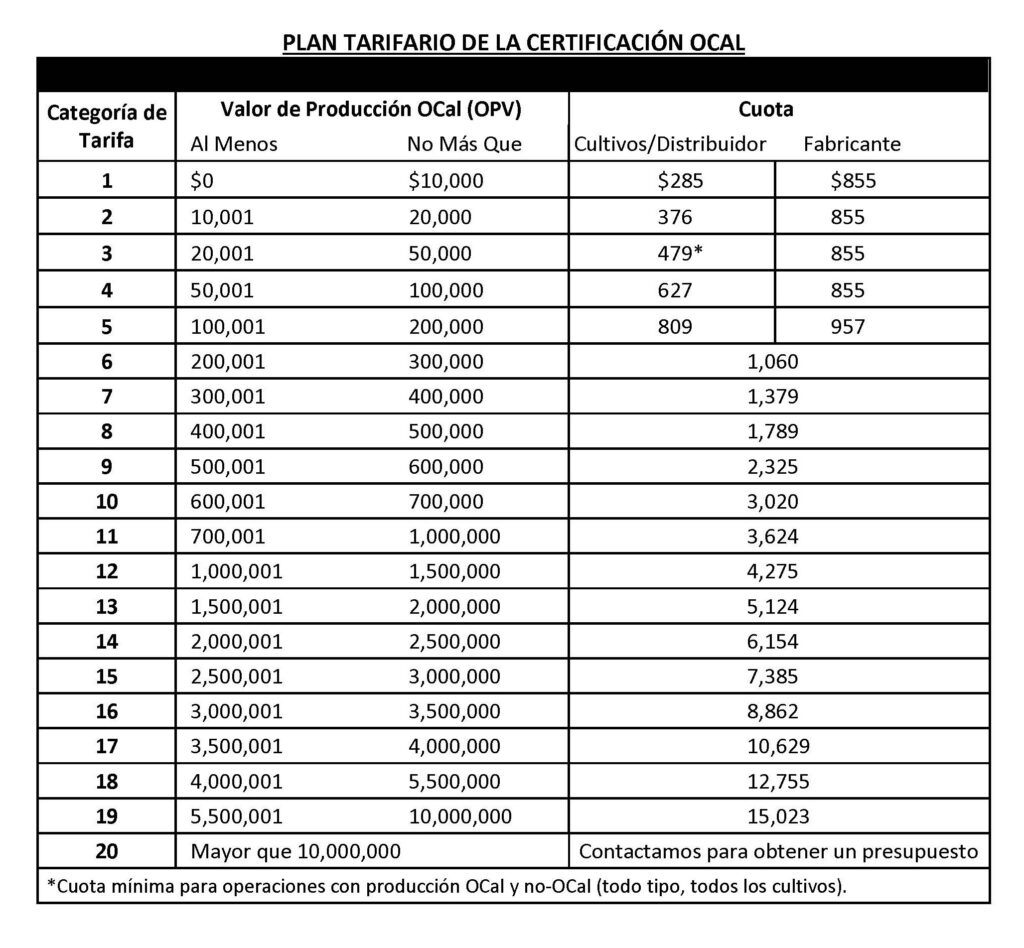Conventional cannabis production may use any input (i.e., pesticides, fertilizers, etc.) allowed by the Department of Pesticide Regulation in California. Many of these inputs are synthetic toxic chemicals that can degrade soil, water, and air quality. In contrast, OCal regulations have the same input restrictions as the National Organic Program (NOP) regulations for organic farmers. This prohibits the use of most synthetic substances commonly used in conventional agriculture.
Just like in the NOP regulations, the OCal regulations also require cannabis farmers to implement practices that maintain or improve the natural resources of their operation, including the soil, water, wetlands, woodlands, and wildlife on a cannabis farm. Peer reviewed science shows that organic farming practices sequester carbon, protect pollinators, keep water sources clean, and provide a multitude of other ecosystem services. These practices build healthy soils that store carbon, reduce levels of CO2 in the atmosphere, and mitigate climate change.



